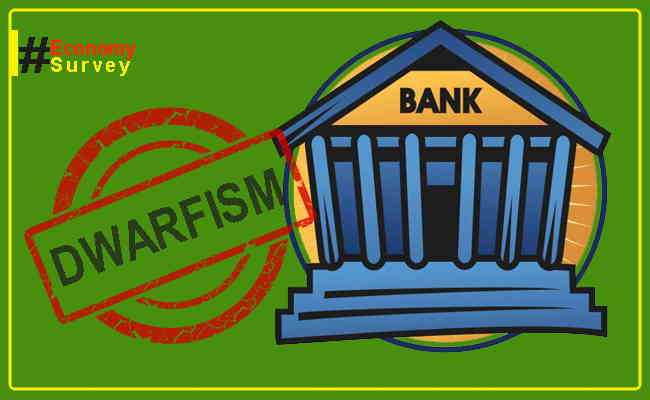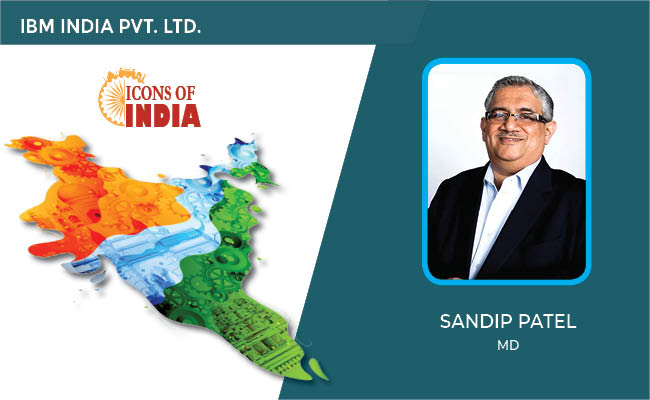Indian banks facing dwarfism on every parameter as per Economy survey
By MYBRANDBOOK

A survey conducted by the Economic Survey has made it clear that while Rs 4.3 lakh crore of taxpayers’ money has gone into PSBs, every rupee invested has lost 23 paise as on 2019, describing Indian banks as suffering ‘dwarfism’, with only one bank in the top 100, while six are needed for an economy like India’s size.
PSBs should be asked to share corporate data among themselves through a GSTNlike entity (PSB network) and undertake analytics of the data using Fintech. PSB employees should hold stake through Employee Stock Option Scheme across all levels. “Part-ownership of PSBs by employees will reduce agency problems.
Assessing the performance of government banks after completion of 50 years of nationalisation in July 2019, the government’s report card on the economy said on every performance parameter ‘PSBs are inefficient compared to their peer groups’.
As of January 2020, every rupee of a taxpayer’s money invested in PSB is fetching a market value of Rs 71 paise. As against that every rupee invested in a private bank fetches a market value of Rs 3.7, which is five times the return in PSBs.
According to the report, if the market-to-book ratio of each PSB becomes equal to that of the second-worst new private bank, the improvement would gain the government Rs 9.1 lakh crore, which is about 8.5 times the disinvestment budget for 2019.
Highlighting the importance of banks, the survey said historically the top-five economies have always been supported by their banks. “India becoming a $5-trillion economy will require at least eight Indian banks to be large enough to belong in the top 100 globally.” However, credit growth in PSBs has been sluggish, largely because of their large stock of bad loans. In 2019, PSBs reported gross non-performing assets (NPAs) of Rs 7.4 lakh crore, which is 11.9% of their loans. “NPAs of Indian banks, particularly PSBs, could have been prevented if data and analytics were employed in corporate lending.”
While there have been arguments of the social impact of bank nationalisation, the survey said there have been multiple factors at work. Noting that rural branches have increased 10-fold and credit to rural areas rose 20-fold in the first decade after nationalisation; it said some caution is necessary in interpreting the above trends as being entirely caused by nationalisation.


Nazara and ONDC set to transform in-game monetization with ‘
Nazara Technologies has teamed up with the Open Network for Digital Comme...

Jio Platforms and NICSI to offer cloud services to government
In a collaborative initiative, the National Informatics Centre Services In...

BSNL awards ₹5,000 Cr Project to RVNL-Led Consortium
A syndicate led by Rail Vikas Nigam Limited (abbreviated as RVNL), along wi...

Pinterest tracks users without consent, alleges complaint
A recent complaint alleges that Pinterest, the popular image-sharing platf...


ICONS OF INDIA : SUNIL VACHANI
Sunil Vachani is the Chairman of Dixon Technologies (India) Ltd. Under...

ICONS OF INDIA : SANDIP PATEL
Sandip Patel is the Managing Director for IBM India & South Asia regio...

Icons Of India : Daisy Chittilapilly
Daisy Chittilapilly is the President of Cisco’s India and SAARC regi...


PFC - Power Finance Corporation Ltd
PFC is a leading financial institution in India specializing in power ...

ITI - ITI Limited
ITI Limited is a leading provider of telecommunications equipment, sol...

HPCL - Hindustan Petroleum Corporation Ltd.
HPCL is an integrated oil and gas company involved in refining, market...


Indian Tech Talent Excelling The Tech World - Sanjay Mehrotra, CEO- Micron Technology
Sanjay Mehrotra, the President and CEO of Micron Technology, is at the...

Indian Tech Talent Excelling The Tech World - Dheeraj Pandey, CEO, DevRev
Dheeraj Pandey, Co-founder and CEO at DevRev , has a remarkable journe...

Indian Tech Talent Excelling The Tech World - Rajiv Ramaswami, President & CEO, Nutanix Technologies
Rajiv Ramaswami, President and CEO of Nutanix, brings over 30 years of...